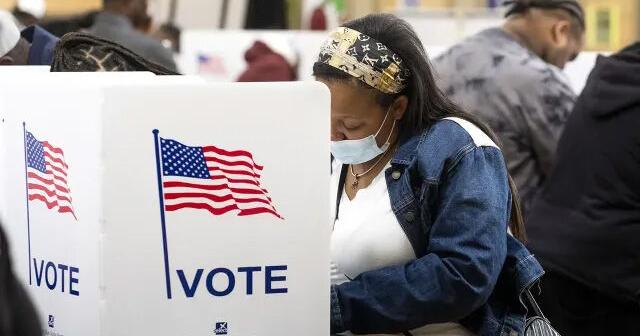Public Politics is the negotiating process between interested constituencies regarding the access to and distribution of limited resources and the resulting outcome or policies pertaining to those resources.
One of the popular narratives that was disseminated in mainstream American media to explain Hillary Clinton’s 2016 presidential campaign loss to Donald Trump was post-Obama voter apathy in the African American community. According to The Washington Post, “In 2016, a seven-point drop in black voter turnout was perceived to have cost Clinton the election.”
Political commentators often cite black voters’ “enthusiasm gap” as the primary reason for low turnout. This short-sighted perspective fails to consider that Mrs. Clinton ran a terrible campaign. She took the African American vote for granted and failed to craft a message that spoke to the needs and interests of the Community. Blaming the Community played into a stereotype that labeled African Americans as uninformed and monolithic in thought, instead of being introspective and recognizing her own shortcomings. Her campaign ignored a simple reality… African Americans are as “political” as the rest of the country and there are real and substantive political interests that motivate the Community.
Two substantive pieces of legislation that impacted Hillary Clinton’s campaign came out of her husband’s administration: The 1994 Violent Crime Control and Law Enforcement Act and the 1996 Personal Responsibility and Work Opportunity Reconciliation Act. The crime act, also known as “3 Strikes and You’re Out” contributed greatly to the mass incarceration of African Americans. So-called welfare reform, that Hillary Clinton encouraged her husband to sign, removed hundreds of thousands of poor people of color from the welfare safety-net and plunged them into the ranks of the desperately working poor. Many African Americans never forgot nor forgave her for supporting these pieces of legislation, as well as her referring to members of the Community as “superpredators” who needed to be brought “to heel.” It was not voter apathy or an “enthusiasm gap” that turned the African American community against the Hillary Clinton campaign, it was the realpolitik of Hillary Clinton.
As America moves closer to the 2024 presidential election, the narrative of “voter apathy” and problems with the African American voter are being promoted once again. The Guardian reports – Black and Hispanic voters deserting Democratic party in large numbers. The problem with this story is its failure to focus on Democratic party policy outcomes that have left many African American voters feeling ignored and disrespected. Fox reports – Biden support from Black voters plummeting as Democrats blame ‘disinformation.’
The Democratic party elite need to realize that African American voters are not uninformed, simple-minded, easily swayed nor can be taken for granted. President Biden has not developed, acted upon, nor articulated a message that resonates with the Community and reflects its reality. There is another reality that is developing that could turn the “blame African Americans for Democratic party disappointments” narrative on its head. It is an oppositional form of politics called “uncommitted” that is gaining traction in Michigan, Minnesota, and other states. In the most recent Michigan presidential primary, the Listen to Michigan campaign which is a coalition of African American, Arab American, Muslim American, and other voters is expected to receive approximately 10,000 votes. The country was shocked to have more than 100,000 Michiganders take the time to vote for nobody instead of the incumbent president.
Michigan is a battleground state that President Biden won by fewer than 150,000 votes in 2020. The strength of that 2024 “uncommitted” protest vote sent an unambiguous message to the Democrats. On Super Tuesday Minnesota saw nearly 19 percent of its primary voters check the “uncommitted” box — an even higher ratio of voters than in Michigan. The focus of the voter’s ire in both Michigan and Minnesota is the Biden administration’s unyielding support for genocide in Gaza. The #AbandonBiden campaign has said that under no circumstances will it support Biden in November. “Our triumph in Michigan is more than a victory; it’s a declaration of our fury and our refusal to be silenced…”
According to a recent poll from The Associated Press-NORC Center for Public Affairs Research, 4 in 10 U.S. adults want America to broadly take a “less active” role in solving global conflicts. In a recent poll from Data for Progress, roughly three in four Democrats support a permanent ceasefire in Gaza. In the Data for Progress poll, a total of 61% of Americans polled said they were in favor of a ceasefire. The Democratic Party and its presumptive nominee, President Biden are ignoring their base. This is a very dangerous tactic when a Reuters/Ipsos poll showed Americans are not excited about a Trump vs. Biden rematch.
In fact, there is a growing cohort called “double-haters,” those who are dissatisfied with Biden and Trump and do not want either candidate to win in November. Recent polls from the Marquette Law School, NYT-Siena College, and Morning Consult all reported 19 percent of those polled expressed dissatisfaction with both options. That is a large percentage of voters in a race that right now is within 1.5% to 2.0%, well within the margin of error.
Labor unions should be another area of concern for the Biden/Harris ticket. This past January, UAW President Shawn Fein announced the UAW’s endorsement of President Biden. Fain praised Biden for standing with the union during its strike against the Detroit Three automakers. The problem is the approximately 1 million rank and file membership may not follow the endorsement of UAW union leadership. Following the union endorsement Fein explained that he expected most of the UAW membership would not vote for President Biden in November. During an interview on Fox Business Network’s Your World with Neil Cavuto, Fain stated, “Let me be clear about this. A great majority of our members will not vote for President Biden…The majority of our members are gonna’ vote for their paychecks, they’re gonna’ vote for an economy that works for them.”
The Washington Post recently reported that The Service Employees International Union (SEIU), which represents about 2 million healthcare, property service, and government workers, plans to spend $200 million to boost President Biden and Democrats in electoral battlegrounds across the country this year. If the Democratic Party historically is the bastion of union politics and support, why is the UAW’s rank-and-file “gonna vote for their paychecks” (not for Biden) and why is the SEIU planning to spend $200M to get their vote out amongst a constituency that historically votes for Democrats?
According to The National Alliance to End Homeless, homelessness is on the rise in America. In 2022, counts of individuals (421,392 people) and chronically homeless individuals (127,768) reached record highs in the history of data collection. Unsheltered rates are also trending upward, impacting most racial, ethnic, and gender subgroups. As more than half of working Americans (53 percent), according to a recent Workforce Monitor study feel their paychecks are not keeping up with the pace of inflation, the Biden administration continues to find ways to send the much-needed American tax dollar to war efforts in Ukraine and Gaza. According to Stephen Semler in Jacobin, “The Biden administration has been able to maintain a low profile by spreading arms provision to Israel across more than 100 smaller munitions sales”— allowing the president to posture as a peacekeeper while U.S. weapons wipe Gaza off the map.
Voter disinterest is not the issue; voter apathy is not the new black. The two major American political parties are listening to their corporate benefactors, talking amongst themselves in their echo chambers and are not listening to their constituents. Maintain current the course and speed at your own peril.
Dr. Wilmer Leon is a nationally broadcasted talk radio host, an adjunct professor of political science, host of the podcast Connecting the Dots w/ Dr. Wilmer Leon, and author of Politics Another Perspective. To contact Dr. Leon, visit www.wilmerleon.com or email: [email protected]. Connect on social media with Dr. Leon via www.twitter.com/drwleon and Dr. Leon’s Prescription at Facebook.com.




